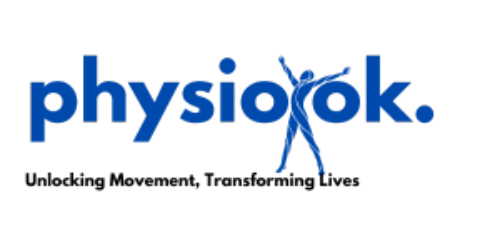Posture plays a vital role in maintaining musculoskeletal health and preventing pain. Poor posture can lead to chronic issues such as back pain, neck strain, and reduced mobility. Physiotherapy focuses on identifying and correcting postural imbalances through detailed assessments and tailored treatment plans.
What is a Posture Assessment?
A posture assessment is an evaluation conducted by a physiotherapist to examine an individual's alignment, movement patterns, and musculoskeletal health. The goal is to identify postural deviations and understand their impact on the body.
Key Components of a Posture Assessment
-
Static Posture Analysis
- Observing the body in standing and sitting positions.
- Identifying misalignments such as forward head posture, rounded shoulders, or uneven hips.
-
Dynamic Posture Analysis
- Evaluating how the body moves during activities such as walking, running, or lifting.
- Detecting compensatory movements or imbalances.
-
Muscle Testing
- Assessing the strength and flexibility of muscles supporting posture, such as the core, back, and neck.
- Identifying tight or weak muscles that contribute to poor posture.
-
Joint Mobility Examination
- Checking the range of motion in the spine, hips, shoulders, and other key joints.
- Highlighting areas of stiffness or instability.
-
Balance and Stability Testing
- Analyzing balance to determine how the body maintains alignment.
- Testing functional stability during different activities.
-
Postural Symmetry Measurements
- Using tools like plumb lines, grids, or digital posture analysis software to measure deviations from the ideal posture.
Common Postural Issues Identified
-
Kyphosis (Hunched Back)
- Excessive curvature of the thoracic spine, often from prolonged sitting or poor ergonomics.
-
Lordosis (Swayback)
- An exaggerated inward curve of the lumbar spine.
-
Forward Head Posture
- Head positioned forward of the shoulders, often due to excessive screen time.
-
Scoliosis
- Lateral curvature of the spine, which may require specialized treatment.
-
Pelvic Tilt
- Anterior or posterior tilt of the pelvis affecting spinal alignment.
Benefits of Posture Assessments
-
Pain Relief
- Identifies the root cause of discomfort related to postural strain.
-
Improved Functionality
- Enhances movement efficiency and reduces the risk of injury.
-
Tailored Interventions
- Guides physiotherapists in creating customized exercise programs.
-
Better Overall Health
- Promotes healthy alignment, improving circulation, breathing, and digestion.
Physiotherapy Techniques to Correct Posture
-
Targeted Exercises
- Strengthening weak muscles and stretching tight areas.
-
Manual Therapy
- Hands-on techniques to release tension and improve joint mobility.
-
Postural Education
- Teaching patients about proper alignment during daily activities.
-
Ergonomic Adjustments
- Advising on workspace setup and lifestyle changes to support good posture.
-
Taping and Bracing
- Using kinesiology tape or braces to encourage proper alignment.
Posture Assessment Tools
-
Plumb Line
- A string with a weight used to observe deviations from vertical alignment.
-
Posture Grids
- A grid backdrop that helps visualize body alignment.
-
Goniometers
- Tools to measure joint angles and range of motion.
-
Digital Analysis Software
- Advanced tools for precise measurements and tracking progress.
Tips for Maintaining Good Posture
-
Practice Regular Exercises
- Focus on core strengthening, back extensions, and stretches.
-
Adjust Workspaces
- Use ergonomic chairs, adjustable desks, and proper screen height.
-
Be Mindful of Movements
- Avoid slouching or prolonged sitting by taking frequent breaks.
-
Stay Active
- Engage in activities like yoga or Pilates to improve posture.
Conclusion
Posture assessments are a cornerstone of physiotherapy, providing valuable insights into the alignment and functionality of the body. By addressing postural imbalances early, physiotherapists can help patients achieve long-term pain relief, improved mobility, and enhanced quality of life. Whether it's correcting everyday habits or managing chronic conditions, proper posture is a foundation for overall health and well-being.
